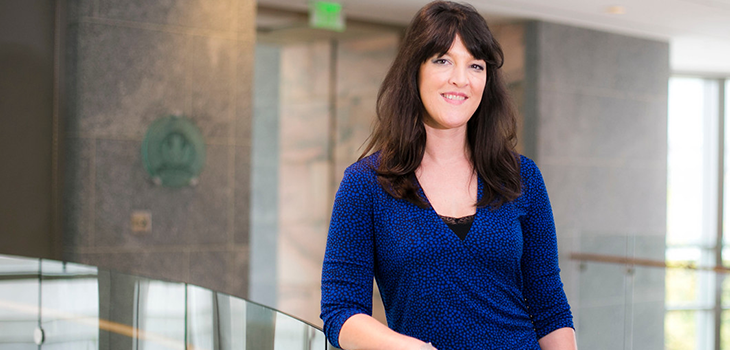CFDE Featured Faculty Member: Dabney Evans

Dabney Evans calls herself a Center for Faculty Development and Excellence “super-user.” The assistant professor of behavioral sciences and health education and global health has taught in the Rollins School of Public Health since 2011, and she has been involved with the CFDE from the beginning of her career, including as an advisory board member. Over the years she has made use of various grants, professional development opportunities, and other resources, including receiving a FIT grant,Classroom Mini-Grants, and a SWAP Grant; convening a University Course on “Global Security;” teaching a Coursera course on “Ebola Virus Disease: An Evolving Epidemic; ”participating in an Academic Learning Community on Religion and Public Health; and serving as a panelist in a CFDE program on “Being an Effective Mentee” last October, among other activities.
Evans points to two broad tracks in which CFDE resources have been helpful for her professional life. They first have, she says, “helped me to improve my pedagogy. Things like the classroom mini-grants and the FIT grants have improved the classroom experience, while on the other side, the professional development side, the CFDE has helped me create a clear career trajectory for myself.”
Evans received teaching grants to help undergraduates develop final projects for a health and human rights class and to hire master’s students as co-instructors for an undergraduate class. The master’s students, she says, “were responsible, under my supervision, for developing the content and then presenting that content in the undergraduate class.” The master’s students were thus able to gain a new skill set in their teaching, while the undergraduate students were presented with role models for a possible new career path.
On the professional development track, Evans says a Scholarly Writing and Publishing (SWAP) grant to hire an editor in 2014-2015 helped her publish seven articles. But the single most beneficial CFDE resource, she says, was a peer mentoring program in 2013-14. In this program, a senior mentor was grouped with four or five faculty members of different ranks from across the university. “Initially we met over a semester,” Evans says, “but our group decided to continue for a year, and some of those networks even continue today.” Her participation in this group led Evans to develop a peer mentoring group within the Rollins School of Public Health, which in turn led to a professional group amongst the non-tenure-track faculty within her school.
Evans believes that such practices of bringing resources back to the individual schools is the most important role of the center’s advisory board: “to be a liaison back to the individual units and make sure that faculty in the units realize these [CFDE] resources exist.” Because she has been able to make use of the CFDE to, in her words, “bolster and support” her own career, Evans is passionate about passing information and resources along to others.